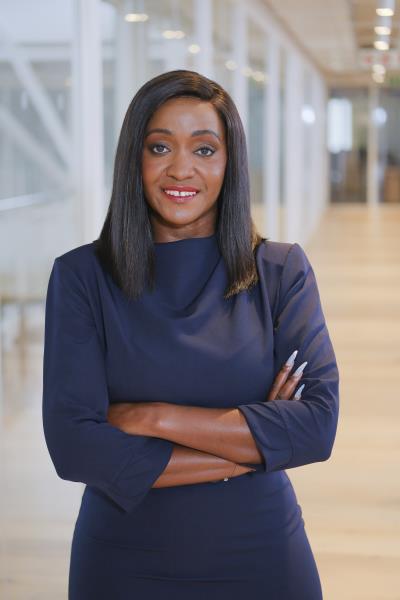28 May 2025
Caroline Mbugua HSC. Senior Director, Public Policy & Communications, GSMA
Universal broadband access is fundamental to Africa's socio-economic transformation - yet a significant digital divide continues to hold the continent back. While most African countries have established Universal Service Funds (USFs) to help close this gap, a recent GSMA report highlights a troubling disconnect between the funds collected and the real-world impact on broadband expansion. Between 2018 and 2022, more than $1.5 billion was accumulated through USFs across Africa, yet much of this remains unspent. Dormancy, poor transparency, and political interference continue to hamper the effectiveness of these funds.
Despite major progress over the past decade, Africa remains the most under connected region in the world. As of the latest GSMA data, around 1 billion people across Africa remain unconnected to mobile internet services - a challenge made up of both a coverage gap (about 160 million people living outside areas served by mobile broadband) and an even larger usage gap, where roughly 800 million people are covered by a mobile broadband network but are not using it. While mobile broadband coverage has expanded dramatically - from 56% in 2012 to 87% by the end of 2023 - this progress is uneven. Countries like the Democratic Republic of Congo (54% coverage) and Burkina Faso (30% coverage) still lag significantly behind regional leaders such as Morocco and South Africa, which have reduced their coverage gaps to below 1%.
The problem isn’t ambition - it’s implementation. Today, 51 out of 54 African countries have created or plan to create USFs, funded through levies on telecom operators ranging from 0.2% to 3.5% of revenue. But the GSMA’s Universal Service Funds in Africa report reveals that more than $265 million across 12 countries remains unspent. Only 30% of USFs publish regular reports, and around 20% struggle with consistent collections. With 70% of funds managed by regulators, the risk of political influence is real - often skewing fund allocation toward short-term or politically motivated projects.
Yet there are clear examples of what’s possible when USFs are managed effectively. In Nigeria, the Universal Service Provision Fund supported the Emerging Technologies Centre to drive digital innovation. Zimbabwe’s USF delivered ICT labs to 60 rural schools, helping both students and the wider community. Ghana’s USF-backed shared network has already connected 3.4 million people across 1,000 sites. These projects show the transformative power of well-governed USFs.
Fundamentally, the USF mechanism is intended to supplement market-based policies to close the access gap by incentivising service providers to deploy infrastructure and services in remote and underserved locations. Insights from the GSMA Universal Service Funds in Africa Policy Reforms to Enhance Effectiveness report show that many USFs in Africa are underperforming and have become ineffective tools for closing the connectivity gap. In view of the urgency to close the coverage gap and usage gap, it has become imperative to either reform critical structural and operational aspects of USFs across Africa to improve their effectiveness or discontinue the USF approach. Political will among governments and policymakers is an important first step in the journey to USF reform. This is fundamental for improvements to the USF legal framework, where required, as well as adherence to the core principles of an effective and successful USF – namely, accountability, clarity, service neutrality, transparency, sustainability and visibility. Beyond that, specific steps must be taken to address factors limiting performance and explore new ways to utse USFs to enhance their effectiveness.
In line with this, USFs must be supported by independent governance structures to ensure fair and transparent decision-making. A data-led approach, as seen with Uganda’s coverage maps, can ensure that investments reach the most underserved areas. Strong stakeholder consultation, such as Ghana’s multi-operator board, can foster trust and industry alignment. Supporting operational expenditure (OPEX) is also essential for the sustainability of projects. Meanwhile, models like Morocco’s “pay or play” scheme, where operators can contribute financially or implement projects directly, offer flexibility and innovation.
Beyond USFs, complementary policy reforms are also necessary to enhance broadband access and adoption. Reducing sector-specific taxes, as seen in Benin, or waiving rural spectrum fees can significantly decrease the cost of infrastructure rollout. Streamlining tower and fibre permitting can further accelerate network expansion.
In summary, USFs should serve as catalysts for long-term investment in digital infrastructure; however, that potential remains largely untapped. Africa urgently requires a shift from passive fund accumulation to strategic, transparent deployment. By revitalising USFs and aligning broader policy frameworks, we can unlock the full socio-economic benefits of universal connectivity for all Africans.







